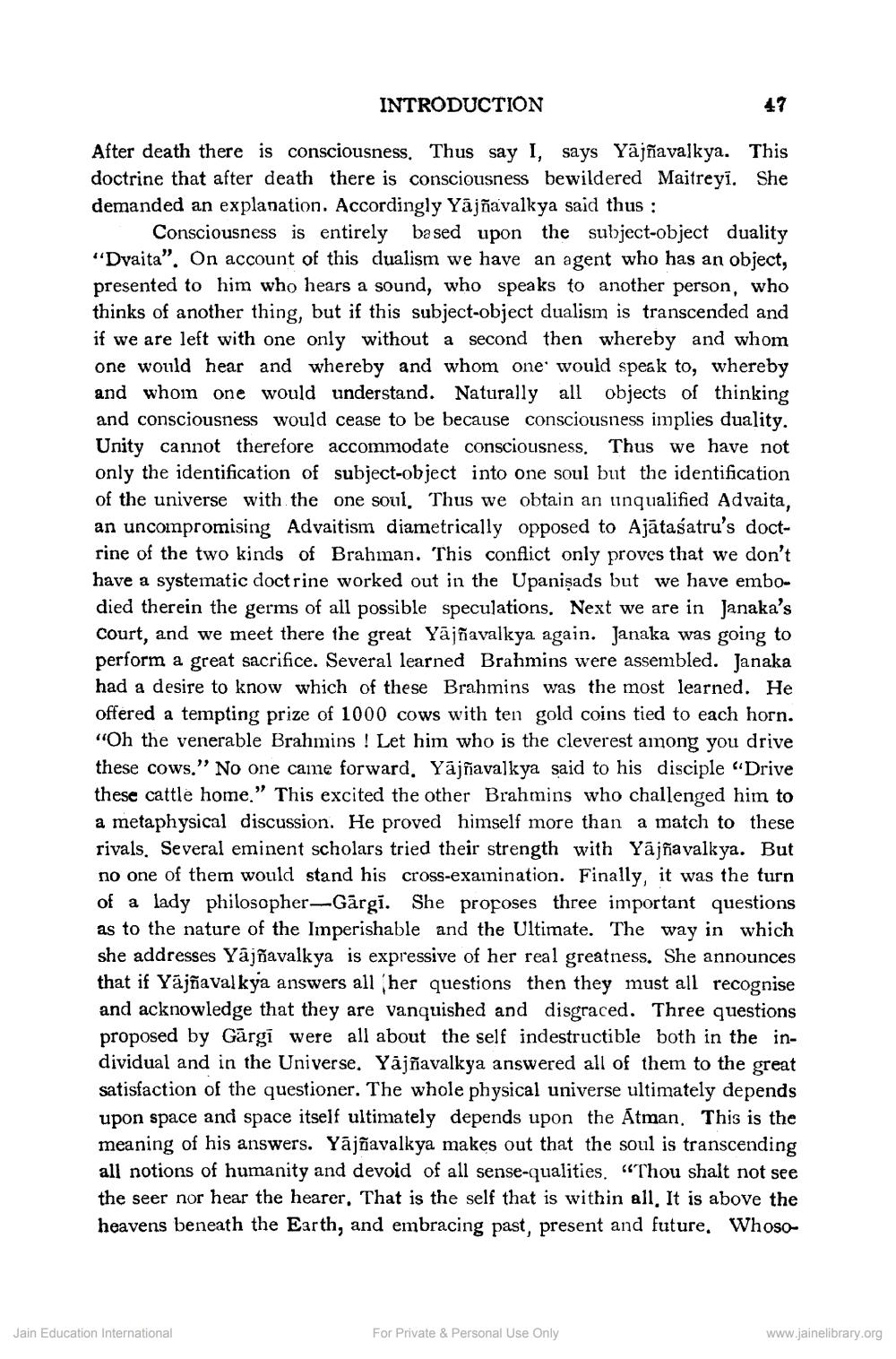________________
INTRODUCTION
After death there is consciousness. Thus say I, says Yājñavalkya. This doctrine that after death there is consciousness bewildered Maitreyi. She demanded an explanation. Accordingly Yājñavalkya said thus :
Consciousness is entirely based upon the subject-object duality "Dvaita". On account of this dualism we have an agent who has an object, presented to him who hears a sound, who speaks to another person, who thinks of another thing, but if this subject-object dualism is transcended and if we are left with one only without a second then whereby and whom one would hear and whereby and whom one would speak to, whereby and whom one would understand. Naturally all objects of thinking and consciousness would cease to be because consciousness implies duality. Unity cannot therefore accommodate consciousness. Thus we have not only the identification of subject-object into one soul but the identification of the universe with the one soul. Thus we obtain an unqualified Advaita, an uncompromising Advaitism diametrically opposed to Ajātaśatru's doctrine of the two kinds of Brahman. This conflict only proves that we don't have a systematic doctrine worked out in the Upanişads but we have embodied therein the germs of all possible speculations. Next we are in Janaka's court, and we meet there the great Yajñavalkya again. Janaka was going to perform a great sacrifice. Several learned Brahmins were assembled. Janaka had a desire to know which of these Brahmins was the most learned. He offered a tempting prize of 1000 cows with ten gold coins tied to each horn. "Oh the venerable Brahmins ! Let him who is the cleverest among you drive these cows." No one came forward. Yājñavalkya said to his disciple "Drive these cattle home." This excited the other Brahmins who challenged him to a metaphysical discussion. He proved himself more than a match to these rivals. Several eminent scholars tried their strength with Yājñavalkya. But no one of them would stand his cross-examination. Finally, it was the turn of a lady philosopher-Gārgi. She proposes three important questions as to the nature of the Imperishable and the Ultimate. The way in which she addresses Yajñavalkya is expressive of her real greatness. She announces that if Yājñavalkya answers all (her questions then they must all recognise and acknowledge that they are vanquished and disgraced. Three questions proposed by Gārgi were all about the self indestructible both in the individual and in the Universe. Yājñavalkya answered all of them to the great satisfaction of the questioner. The whole physical universe ultimately depends upon space and space itself ultimately depends upon the Atman. This is the meaning of his answers. Yājñavalkya makes out that the soul is transcending all notions of humanity and devoid of all sense-qualities. “Thou shalt not see the seer nor hear the hearer, That is the self that is within all. It is above the heavens beneath the Earth, and embracing past, present and future. Whoso
Jain Education International
For Private & Personal Use Only
www.jainelibrary.org




